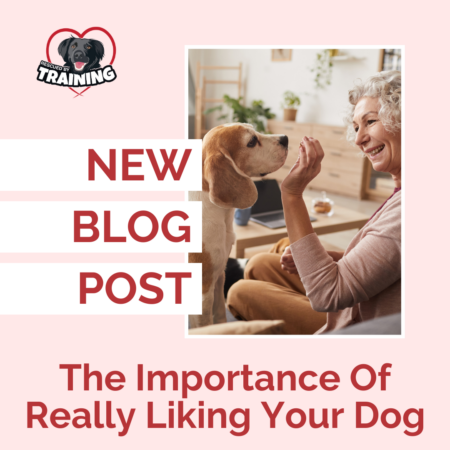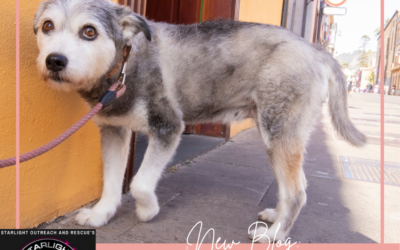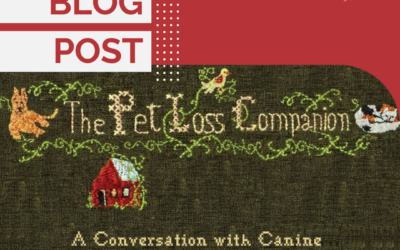If I asked most dog guardians if they liked their dog, they’d quickly reply something like “Of course, I love my dog!” But loving your dog isn’t the same as liking your dog. Love and like are different psychological experiences, so it’s possible to love your dog and not actually like them. This can happen when you have a strong emotional connection but their actions or behavior may not align with your expectations. And I see this often in my behavior practice. Some clients are caring for and loving their dog but don’t actually like the dog.
As a behavior consultant and trainer, who specializes in fear, aggression, reactivity and separation anxiety, as well as living with an aggressive dog myself (before I was a trainer), I know that living with a dog with behavior issues is really challenging. It can be easy to form resentments, be angry, upset and disappointed. You dreamed of adding a dog to your family and you finally did. But, your dream didn’t turn out the way you thought it would. And this is why it’s so important to like your dog. I mean, like Sally Field’s Oscar “You like me!” moment.
Liking your dog, for who they are and not what we want them to be, is so critical to your relationship with your dog.
I see a lot of people trying to communicate their dog’s issue and use very colorful, sometimes inflammatory language. Over time I’ve learned to temper their descriptions and get them to focus on observations, not extrapolations of what they think is going on. Not only are colorful interpretations not terribly helpful from a training perspective but using negative or scary language about your dog colors how you see them. Instead of saying “my dog is aggressive,” tell me “my dog growls at me when I try to remove a bone from him.” The latter is much more informative, helpful and leaves little room for interpretation or misunderstanding.
The words you choose describe and express your emotions to others and repeated over and over, they begin to deepen those feelings and can even become what we experience. Words are powerful and they always have emotion behind them.
Think about your human relationships. If you have someone in your life who makes a mistake or wrongs you, and then you start to harp on that thing and talk about it all the time, you’re much more likely to begin to see that person in a much more negative light than if you looked for positives that person brings to your life. You’d much more quickly move towards forgiveness, understanding and move on from whatever wronged you. The same applies to your dog.
I get it. Living with a reactive or otherwise difficult dog is hard. It’s hard emotionally. It’s hard to schedule things. Maybe you’re even scared. You may blame your dog for missing out on things or for not being “normal.” That’s all understandable. But, if your goal is to help your dog, using words like aggressive, attacked, vicious, ferocious, jealous, angry or manipulative will not help you help your dog.
As a related aside, research shows that how cute a person perceives a dog to be influences their perceptions of its likely personality. The researchers named this finding “The Canine Cuteness Effect” and define it as “the tendency for modern dog owners to report stronger relationships with dogs they perceive to be cute.” They also noted that cuteness, dog personality, and attachment are interrelated.
We joke and give extra leniency to dogs or kids we think are cute, often joking “it’s a good thing he’s cute” when they do something undesirable but we overlook it or don’t take it seriously. To me, this joke tells me you like that being and are willing to give them grace in this situation where maybe you wouldn’t extend that forgiveness or kindness to another creature in the same situation.
If you don’t truly LIKE your dog, you’re going to be far less likely to give them grace, to think their antics are funny, to understand no being will ever be perfect, to be willing to inconvenience yourself for their benefit, to be tolerant, to be patient or to just want to be around them. And these things are markers of a good relationship. Without them, you’re tolerating, not liking your dog.
And this is why, even if you’re disappointed, really liking your dog will help guide you want to help them. It won’t always be easy but it will help you be more sympathetic when your dog is struggling. And it will help you really understand they’re not giving you a hard time, but they’re having a hard time. It’s not an easy task, I know. But it’s so important to like your dog, so that you can fully love them and be open to loving them in the ways they need to be loved. And when you do this, you are better able to recognize and want to fulfill their needs, even if they don’t align with yours. Sometimes we choose to inconvenience ourselves because we like someone and want to help them. That’s what real friends do.
And, isn’t that what our dog is? A friend, a family member, a companion. Someone you like, and someone you love.
My wish for you is that you like your dog.
But if you’re struggling with this right now, considering surrendering, rehoming or behavioral euthanasia or need help with behavior issues, schedule your training session here. I am here to support you and help you and your dog find the best solution to improving your relationship and individual lives.
![]()




